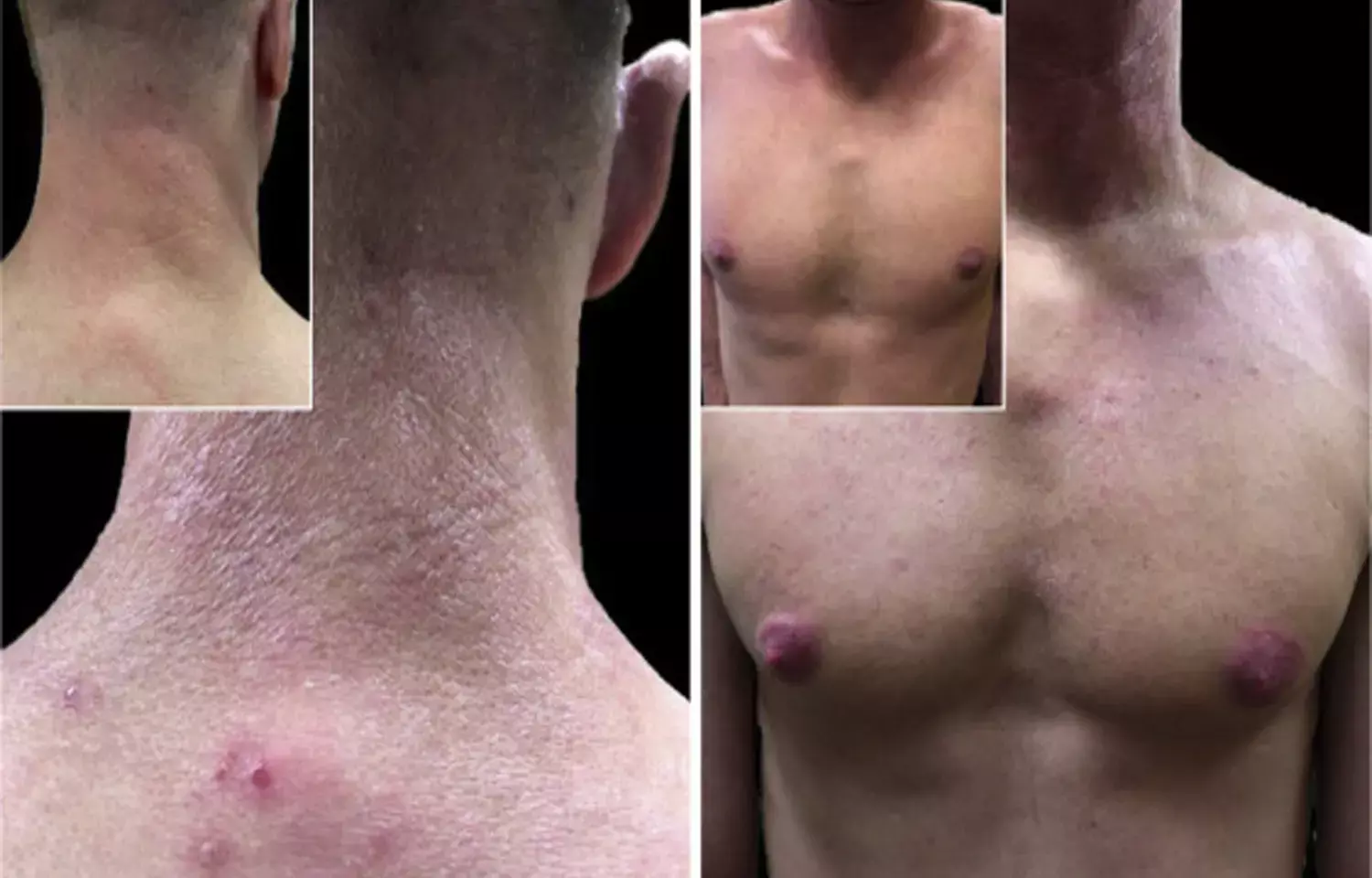- Home
- Medical news & Guidelines
- Anesthesiology
- Cardiology and CTVS
- Critical Care
- Dentistry
- Dermatology
- Diabetes and Endocrinology
- ENT
- Gastroenterology
- Medicine
- Nephrology
- Neurology
- Obstretics-Gynaecology
- Oncology
- Ophthalmology
- Orthopaedics
- Pediatrics-Neonatology
- Psychiatry
- Pulmonology
- Radiology
- Surgery
- Urology
- Laboratory Medicine
- Diet
- Nursing
- Paramedical
- Physiotherapy
- Health news
- Fact Check
- Bone Health Fact Check
- Brain Health Fact Check
- Cancer Related Fact Check
- Child Care Fact Check
- Dental and oral health fact check
- Diabetes and metabolic health fact check
- Diet and Nutrition Fact Check
- Eye and ENT Care Fact Check
- Fitness fact check
- Gut health fact check
- Heart health fact check
- Kidney health fact check
- Medical education fact check
- Men's health fact check
- Respiratory fact check
- Skin and hair care fact check
- Vaccine and Immunization fact check
- Women's health fact check
- AYUSH
- State News
- Andaman and Nicobar Islands
- Andhra Pradesh
- Arunachal Pradesh
- Assam
- Bihar
- Chandigarh
- Chattisgarh
- Dadra and Nagar Haveli
- Daman and Diu
- Delhi
- Goa
- Gujarat
- Haryana
- Himachal Pradesh
- Jammu & Kashmir
- Jharkhand
- Karnataka
- Kerala
- Ladakh
- Lakshadweep
- Madhya Pradesh
- Maharashtra
- Manipur
- Meghalaya
- Mizoram
- Nagaland
- Odisha
- Puducherry
- Punjab
- Rajasthan
- Sikkim
- Tamil Nadu
- Telangana
- Tripura
- Uttar Pradesh
- Uttrakhand
- West Bengal
- Medical Education
- Industry
Dupilumab may Raise Risk of Ocular Disease in Atopic Dermatitis Patients: Study

Dupilumab is the first human monoclonal antibody approved for the treatment of atopic dermatitis (AD). However, a recent study suggests that the use of dupilumab for atopic dermatitis increases the risk of ocular disease. The research has been published in the International Journal of Dermatology on May 26, 2021.
Previous studies have reported an increase of ocular side effects in patients who receive dupilumab, with a prevalence of 5–37%. However, these studies compared patients treated with dupilumab and placebo. And no studies have compared the patients treated with dupilumab and reference group treated with any other treatments such as cyclosporine, phototherapy, and topical corticosteroids. Therefore, a team led by Jordane Barbé conducted a study to compare the prevalence of ocular disease between AD patients receiving dupilumab treatment and AD reference group and to study the profile of the patients who developed ocular disease secondary to dupilumab treatment.
It was a bicentric, retrospective comparative analysis of patients with atopic dermatitis, as diagnosed according to the revised Hanifin and Rajka criteria. The researchers included a total of 100 patients, among which half of the patients received dupilumab 300 mg every 2 weeks. While the other half had received other types of treatment for their atopic dermatitis. They collected efficacy outcomes both at baseline and at month 4 (M4). The major outcome assessed was the presence of ocular disease, which was recorded at M4.
Key findings of the study were:
- Upon analysis, the researchers found that the ocular disease was significantly more frequent in the dupilumab group than in the reference group(36% vs 10%) at month 4.
- They noted that severe allergic conjunctivitis and blepharitis were significantly more frequent in the dupilumab group (30% vs 4%, and 22% vs 2%, respectively) with 1 case developing into ectropion.
- They also noted that these symptoms developed after a mean of 10 weeks following initiation of treatment.
The authors concluded, "This study observed a prevalence of 36% of ocular disease in AD patients treated with dupilumab. Additional studies are required to confirm the risk factors we found for dupilumab-associated ocular disease and to identify new ones. Consultation with an ophthalmologist before the introduction of dupilumab might limit the occurrence of complications."
For further information:
https://onlinelibrary.wiley.com/doi/epdf/10.1111/ijd.15584
Josepha James (Msc Cinical Research) joined Medical Dialogues as a writer in Medical News Section in 2020 . She covers news in several medical specialties from both national and international journals and associations. She has completed Bachelors in Physician Assistant and then pursued Masters in Clinical Research. She can be contacted at editorial@medicaldialogues.in.
Dr Kamal Kant Kohli-MBBS, DTCD- a chest specialist with more than 30 years of practice and a flair for writing clinical articles, Dr Kamal Kant Kohli joined Medical Dialogues as a Chief Editor of Medical News. Besides writing articles, as an editor, he proofreads and verifies all the medical content published on Medical Dialogues including those coming from journals, studies,medical conferences,guidelines etc. Email: drkohli@medicaldialogues.in. Contact no. 011-43720751


